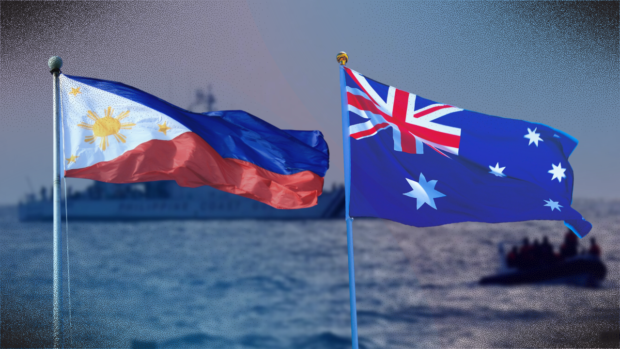
INQUIRER FILE PHOTO
MANILA, Philippines — The Philippines and Australia are looking into conducting joint maritime patrols in the South China Sea, which includes the West Philippine Sea.
The development was announced Wednesday after the bilateral meeting between Defense Secretary Carlito Galvez Jr. and Australian Deputy Prime Minister Richard Marles, who is also the concurrent defense minister of the said country.
“We’re gonna work together to look at ways in which we can deepen the opportunities where Filipino servicemen and women can work alongside Australian servicemen and women,” Marles said in a press conference at the Department of National Defense headquarters in Camp Aguinaldo, Quezon City.
“But [we are] also looking at ways in which we can pursue joint patrols together in the South China Sea, and looking at ways in which we can do more exercises together,” the official added.
Galvez also echoed Marles’ pronouncements, saying both countries seek to expand their bilateral training beyond their armies.
“The training that we are conducting right now is heavy on the army, but what we are trying to explore is the engagement between our navies and also our air forces,” Galvez added.
READ: PH-Australia eyes joint maritime patrol in South China Sea
Marles noted that the stability in the South China Sea is also of importance to Australia since most of the country’s trade traverses the waters.
“Both countries are committed to the maintenance of the global rules-based order … in places like the South China Sea where most of Australia’s trade traverses,” the official said.
“It is natural that we think about cooperating in this respect,” he added.
Tensions continue to hound the South China Sea, with China claiming almost the entire area, including the West Philippine Sea.
The latest incident in the WPS occurred last February 6, when a Chinese Coast Guard vessel illuminated a green light twice toward the Philippine Coast Guard vessel, which was supporting a rotation and resupply mission of the Philippine Navy in Ayungin Shoal.
But in 2016, the United Nations-backed Permanent Court of Arbitration in The Hague invalidated China’s claim to almost the entire South China Sea.


